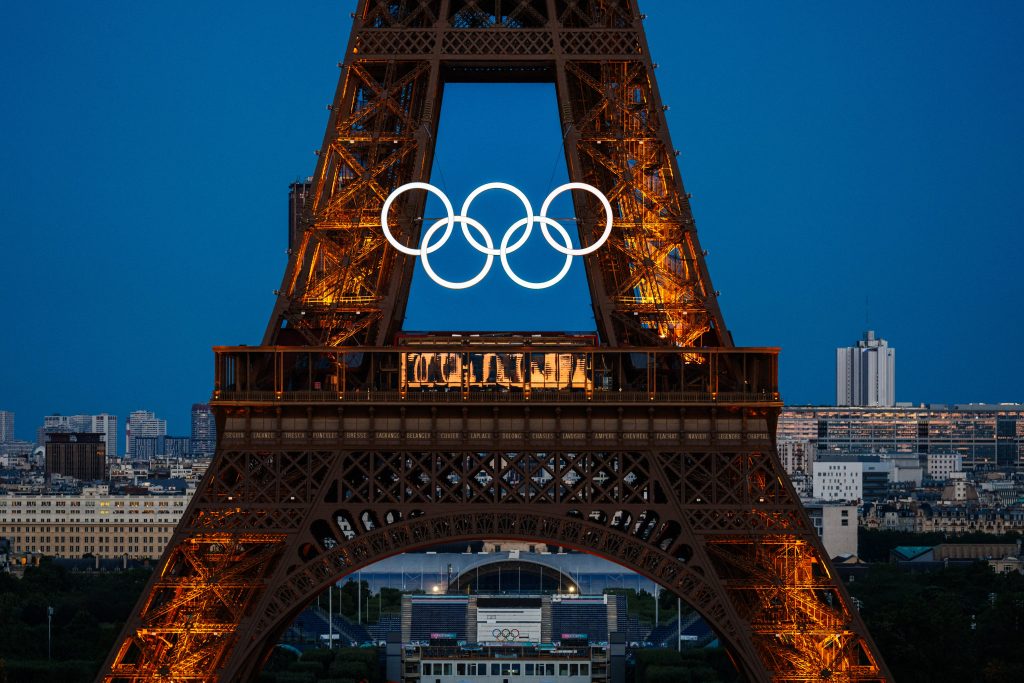By Isidore Emeka Uzoatu
The games of the XXXIII Summer Olympic Games scheduled to last from the 26th of July to the 11th of August 2024, are about to start. It comes hot on the heels of the 2020 games hosted in Tokyo, Japan, that in turn, followed the London 2000 games. In a recent press conference to express their readiness, the organisers of Paris 2024 have vowed to host an unforgettable Olympiad.
Nigeria will be represented by a total of 82 athletes – 25 male/63 female – competing in twelve sports, namely: athletics,18/18; badminton,1/0; basketball, 0/12; boxing, 2/1; canoeing, 0/2; cycling, 0/1; football, 0/18; swimming, 1/1; table tennis, 2/2; taekwondo, 0/1; weight lifting 0/2 and wrestling 1/5.
All in all, Team Nigeria hopes to better their meagre two-medal haul – one silver and one bronze – at the Tokyo 2020 after fielding a total of 55 athletes. A marked improvement on Rio 2016 where a whopping 71 athletes only returned with a lone bronze medal won by the men’s football team. Meanwhile, the country has oftentimes coped with returning without medals in spite of sending huge contingents – often with officials out populating the competitors.
Thankfully, the two medalists in Tokyo – Ese Brume and Blessing Oborodudu – are named in the present team. Thus they stand the best stead to improve their bronze and silver achievements in the women’s long jump and freestyle wrestling 68 kg respectively. What with all the training and competition experiences they have garnered in the interregnum.
Like them, other notable medal hopefuls in the squad include the track athlete Favour Ofili; the table tennis star, Aruna Quadiri; and Tobi Amusa, the current holder of the world record in the women’s 100 metres hurdles. And that’s not discounting the D’Tigresses who’ll represent us in the female basketball event. They are hot favourites for a medal. As well as the Falcons, our female national football team.
Like is within easy recall, Nigeria first participated in the Summer Olympic Games in the1952 edition held in Helsinki. Represented by 9 athletes, they returned from the games with no medals. In fact, Nigeria only won their first medal at the Tokyo 1964 games when Nojeem Maiyegun won a bronze in the men’s light middleweight category of the boxing event. An attainment equalled in the 1972 Munich games by another boxer Isaac Ikhouria who won his in the men’s light heavyweight category.
In fact, Nigeria was only to win a silver in the 1984 Los Angeles Olympics. Again, it was in boxing when Peter Konyegwachie came second in the men’s featherweight class. It was complemented by another bronze by the men’s 4×400 relay team of Sunday Uti, Moses Ugbisie, Rotimi Peters and Innocent Egbunike.
Nigeria did not win a gold medal until the 1996 games in Atlanta. And like it came to pass, it came in a double dose – in individual and team events. While Chioma Ajunwa clinched the female long jump, the dream football team of the Flying Eagles pocketed ‘the mother of all medals’ in the football event.
Ever since Helsinki 1952, Nigeria has participated in all the games of the Olympiad but Montreal 1976 boycotted by Africa. They have since garnered a total of 3 gold, 11 silver and 13 bronze medals. Currently, we are ranked at the 74th position.
The Paris 2024 games hopes to promote safe sex and raise awareness about HIV/AIDS and sexually transmitted diseases. This follows the lifting of the intimacy ban placed in the Olympic Village in previous games. According to Laurent Michaud, the director of the village, for the athletes to interact socially once again, a total of 200,000 condoms will be distributed. A staggering differential from the 50,000 shared in Barcelona 1992 and 150,000 in London 2000,
As stands, this will be the third Olympic Games Paris will be hosting after the previous ones in 1900 and 1924. As though in solidarity, three new sports – surfing, skateboarding and sports climbing – will debut at the games. It’s hoped that as we did not participate in these earlier Paris games this first time will turn out as feasible as possible for our sports development.
As well, unlike in the earlier games before now, Paris 2004 will strive at attaining a percentage of gender equality hitherto alien to the games. While there’ll be a total of 48.8% female athletes, the males are a close 51.2%. A development that will definitely augur well for the expected intimacy between the athletes in the games village.
The opening ceremony themed Made for Sharing comes up at the Stade de France at 16:30 hrs BST on Friday the 26th of July 2024. It has been announced that Nigeria’s flag at the event will be held by Tobi Amusa the world women’s 100 metres hurdles champion.
Uzoatu lives in and writes from Onitsha Anambra State.

